Because it helps to quiet your immediate concerns before thinking about next steps.

The Cycle of Abuse
(or as I call it... 'cycle of emotional entanglement')
It quietly pulls you through a perfect version of your dream come true love story… and you suddenly wake up to the coldest, most confusing, and excruciatingly painful nightmare where you no longer recognize yourself.
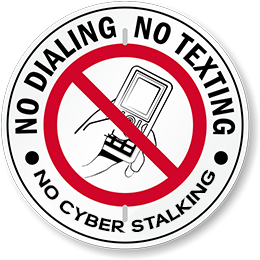
When I was first trying to wrap my head around my sudden and unexpected breakup in October 2017 (I documented the entire thing here, believe it or not), the majority of the articles and guides I found for NPD abuse recovery instructed me to:
- Set and enforce healthy boundaries
- Do No Contact
- Identify and heal any childhood emotional injuries to stop attracting and maintaining relationships with toxic people
- Deprive the ex of any attention and focus on my recovery
Yes, they’re all sound advice, but as a living and breathing human being whose entire world was just shattered into unrecognizable pieces, my most pressing concerns were…

- Did he seriously wipe-out our entire history together, just like that?
- Did this really happen? Could something be very wrong with him?
- Why is someone else suddenly living my life?
- How can he keep doing everyday like he doesn’t notice the people in his life have LITERALLY changed?
And while I thought I was struggling to understand a unique kind of crazy, I quickly discovered that thousands of others across the globe were fighting through the same insanity - asking asking the same questions.
Because a breakup with someone with narcissistic personality disorder is not just an “ordinary” breakup.
This breakup happened with someone who lack emotional empathy, guilt, and remorse. They are physically unable to see you as your own person. They use you up then move on to something new when they’ve run you dry.
A breakup with a narcissist is the beginning of a long and grueling recovery process.
Survivors of narcissistic abuse have suffered from trauma bonding, cognitive dissonance and disassociation, Complex-PTSD, self-harm, and suicide. Please seek support from a competent mental health professional as well as trusted recovery groups for NPD abuse survivors.
Note from the author:
- I will cover basic information about the narcissistic personality disorder, however the primary purpose of this article is to validate the survivors’ experiences.
- Not all who are diagnosed with NPD wreak havoc in the lives of people around them. I’ve interviewed several who obtain supply from other areas in life, including successful careers and volunteer work with charities.
- I will be using the terms “narcissist”, “narcissistic” and “narc” in this post as a shorthand way of referring to individuals who adapted to their childhood environment by developing narcissistic personality disorder.
- If you’re reaching the end of your rope, call the 24-hr National Suicide Prevention Lifeline at 1-800-273-8255 or the 24-hr Crisis Text Line by texting “HELP” to 741–741. Or call 911 or go to your nearest emergency room.
NPD 101
First, it’s important to clarify the difference between narcissism and narcissistic personality disorder.
Narcissistic Traits:
This is a personality trait. It’s when a person feels entitled to the best of everything and most interested in gaining power and prestige due to an over-inflated ego and self-esteem.
There’s also “healthy narcissism” where you feel good about yourself, talk about it, and even brag about it once in a while. This is essential to positive self-esteem without being cut off from a shared emotional life.
Narcissistic Personality Disorder (NPD):
NPD is a Cluster B personality disorder commonly characterized by the following impairments:
- Over-reliance on others for self-definition and regulation of self-esteem
- Lack of emotional empathy (they’re able to learn cognitive empathy)
- Exploitative of others
- Inability to handle the slightest of criticism
- Grandiose sense of self
- Exaggerated entitlement
- Excessive attention and admiration seeking
Cluster B personality disorders are characterized by dramatic, overly emotional or unpredictable thinking or behavior. They include antisocial personality disorder, borderline personality disorder, histrionic personality disorder and narcissistic personality disorder. MayoClinic.org
Here’s the thing - while it appears as though individuals with NPD have an inflated sense of their own importance, behind the mask is a fragile ego that’s painfully vulnerable to the slightest criticism. In addition, these people are unable to define themselves, generate their own self-esteem or worth.
How does NPD happen?
Researchers agree that both genetic and environmental causes contribute to the making for a narcissist. Due to genetics or trauma during early childhood development (constant devaluation / excessive idealization), a narc’s emotional age remains as that of a 5 or 6-year-old where the purpose of those around them is to serve, support, and entertain.
This is also around the age when children begin to realize they’re their own person?—?and people around them have their own unique thoughts and emotions as well.
Unfortunately, the narcissist’s childhood development did not equip them with the security they needed to begin separating from their caregiver (source of supply) and become their own person. That’s where they remain stuck today. They can’t generate self-esteem or worth, so they’re completely dependent on their sources of supply.
This lack of a functioning personality on the inside has to be balanced by importing ego (narcissistic supply) from the outside.
What is narcissistic supply?
This is the actual energy – the feedback the narcissist feed on to validate and gauge his or her worth and existence. Both positive and negative attention qualifies as narcissistic supply. This includes fame, notoriety, adoration, adulation, applause, and fear.
Which is why being in a relationship, having wealth, belonging to an exclusive group, a professional reputation, being successful, owning property, and flaunting one’s status is necessary for narcissists.
What are the SOURCES of narcissistic supply?
The people, things, and events the narcissist draws feedback and reactions from.
According to the DSM-5 (Diagnostic and Statistical Manual of Mental Disorders by the American Psychiatric Assoc.), individuals with NPD:
… form friendships or romantic relationships only if the other person seems likely to advance their purposes or otherwise enhance their self-esteem.
Because narcissists depend on the approval and admiring attention of those around them to regulate their self-esteem and validate their self-worth, we’re all sources of supply in their eyes.
The narc always keeps an assortment of sources to obtain supply from:
- Spouse & kids (sense of normalcy, social acceptance, admiration)
- Religious affiliation (respect, social acceptance, admiration)
- Business (financial success, accomplishment)
- Home, cars, private jets (flaunting material wealth, trigger envy)
- Social media fans (fame, admiration, adoration)
- Romantic relationships on the side (adoration, sexuality, attractiveness)
Anything and anyone that validates the narcissist’s identity and provides them with an inflated status symbol are sources of supply.
It’s important to note that the people who are in the narcissist’s circle are also used to document the narcissist’s accomplishments. Like a living scrapbook. When the narc is running low on supply due to a lull in life events to draw feedback from, they extract energy from these living scrapbooks who remind them of how wonderful they are.
The sources of supply are expendable/interchangeable when:
- The narcissist fails repeatedly (letting the partner down due to lies and infidelity, failing in business, unable to stand out and be special) and the presence of the source (i.e., spouse or affair partner) becomes a constant reminder of their non-special-ness.
- The stimulating effects of the source wear off and the narcissist becomes bored. Remember, they can’t emotionally bond so their connections are always superficial.
- The narc realizes they’re addicted to the supply and resents their dependency on the source. Their fragile ego won’t allow them to accept this dependency, so they devalue the source to put the victim "back in their place".
Alright. Now that we covered the basics of NPD let me share the answers I desperately needed after the narcissistic discard before I could even think about healing and moving on.
PLEASE KEEP IN MIND that Narcissistic Personality Disorder is a very real personality disorder. It’s listed in the Diagnostic and Statistical Manual of Mental Disorders by the American Psychiatric Association. Their behavior is due to how they adapted to their early childhood environment. It’s an invisible illness – they are literally wired this way.
1. No, They Do Not "Love" the New Source of Supply More Than They "Loved" You
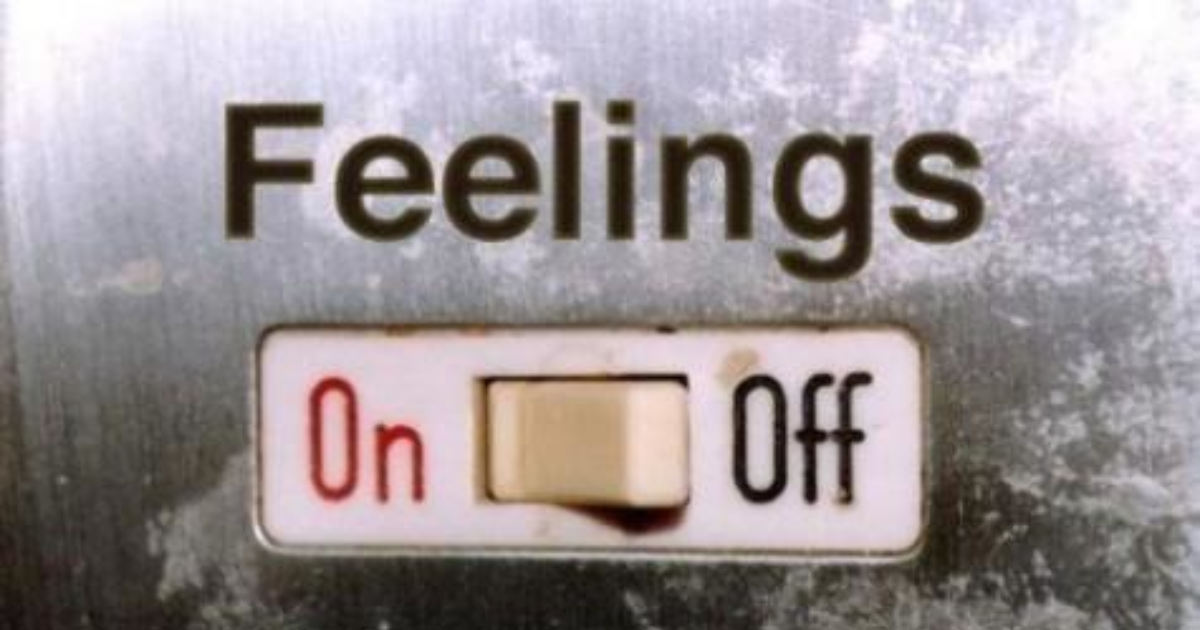
Listen, it’s virtually impossible for a mentally and emotionally whole person to feel genuine love, adoration, affection, and deep bond with one person - then instantly feel those same exact things for someone else.
The narc’s definition of “love” is so far removed from that of a “normal” person’s, that survivors often get stuck trying to wrap their heads around this idea. Which is why I want to give you something you can use to begin processing this painful and confusing experience.
The inability to emotionally bond.
They don’t love the new person more or less than they did you, because they are literally unable to love like we do. They cannot emotionally bond, so their “love” is strictly based on how much and how easily they can get supply.
It’s totally understandable to wonder how the person who was supposed to be your soulmate could so effortlessly take their love away and give it to someone else. But the truth is, they didn’t give you anything. And they’re not giving anything to the new victim either.
Think about it. What could a person who is unable to even define him/herself or generate self-esteem and self-worth, possibly offer someone else?
Then why are they exploding with love and excitement?

While it’s normal to want and appreciate approval, admiration, and acceptance from others, the narcissist depends on obtaining external validation in order to survive. It’s not just something they want - but NEED.
They’re over-the-moon excited about all the supply (approval, adulation, admiration, status, etc.) they anticipate to gain from this new person.
YOU were on the receiving end of all this crazy love-bombing during your idealization stage too, remember?
Shoot, I used to wake up every morning to over 20 text messages, including audio and videos confessing his love for me… thanking me as he cried about how he’s never felt love like this before. But during my discard, this was all reduced to, “Eh, you were my first relationship after my divorce. What did I know?” And off he went doing, saying, and confessing the same exact things to the next victim.
The new victim is currently at where you started in the relationship, and will eventually end up where you are right now.
How is it possible to be so shallow?

- Narcissists are unable to define themselves and lack the ability to generate and maintain self-worth and esteem. They’re empty inside.
- They’re unable to emotionally bond, so their feelings of love and happiness are short lived. As such, they require constant attention and energy to relieve them from the emptiness within.
So… who the new person is, is not nearly as important as what or how easily they can get supply from them. The narcissist will do and say whatever it takes to extract approval, adulation, appreciation, admiration, and status… from both the new source and their witnesses.
The gifts, trips, events, proposals, babies, and everything else the narc showers the new victim with, is strictly to extract supply to validate their existence and gauge their self-esteem and worth.
Their only motivation to do anything is narcissistic supply. So if they find a more convenient place to get it with the least resistance, that’s where they’ll go and fall in “love” all over again.
It’s not: I love you for who you are.
It is: I love every drop of validating fuel I can squeeze out of you.
We’re comparable to an appliance.
When you replace a broken appliance such as a coffee maker with a new one, do you miss the old coffee maker? Most likely not. Why? Because you have a new one that does what it’s supposed to do.
Your life as a whole doesn’t change.
We’re the coffee maker in this analogy. Our only purpose (as the narc’s source of supply), was to provide them with coffee (i.e., approval, adulation, admiration, status) without question, suspicion, or resistance.
The coffee maker will always be replaceable.
The narc’s only goal was and will always be to get coffee.
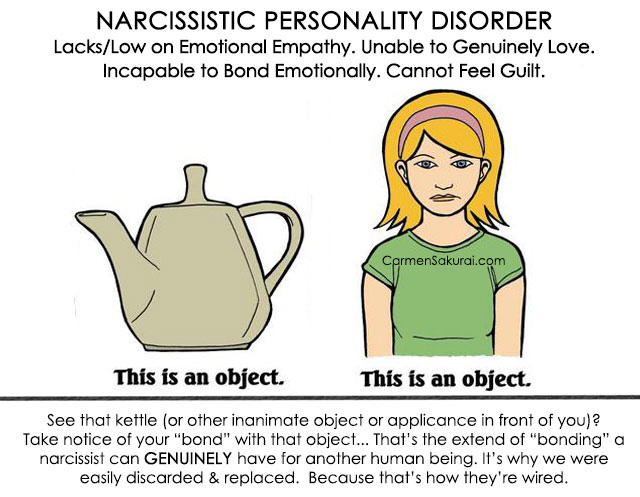
2. No, the New Victim Didn’t Change The Narcissist for the Better
Remember how you thought the narc was beyond amazing at the beginning of your relationship? They were all about YOU, remember? Noticing and loving even the most seemingly trivial and insignificant things about you and your connection with each other.
Of course, you remember. That "soulmate relationship" is what you’ve been tightly hanging onto, and fighting to get back.
That was the idealization stage. The beginning of the narcissistic cycle of abuse. The narcissist takes everyone they trap (lovers, family, friends, coworkers, bystanders, even pets!) through that same cycle.
- No. The new victim did not magically heal the narcissist from their personality disorder.
- No. They didn’t convince the narc to change into the most gentle, loving, and considerate person.
- And no. The skies did not part and the angels did not bless the narc with a heart of true love.
Heck, I got those confessions of life transformation too. I was his “saving angel” who opened his life to a “love and happiness he’s never known,” and he was going to “spend his forever showing me his gratitude.” He was constantly in TEARS telling me all of this – and that was just two weeks into strictly TEXTING! (Yes, I was sadly lacking even the most basic of personal boundaries.)
And while he may have believed all that about me at that MOMENT because narcissists function from a superficial level, those exact deep, life-changing experiences were easily “transferred” to another source of supply when I started speaking up for myself and questioning his shady behavior.
And I am 100% confident that the person he dropped me like yesterday’s trash for, will get the same… as well as the person after that… and so on.
100%... without a doubt.
-- UPDATE --
Unfortunately for the women targeted after me, this came to pass. This narcissist dragged the victim who replaced me - AND - the victim after her... through much, much WORSE. They both found me through my articles and posts and courageously reached out.
This isn't about predicting the future - it's a dangerous behavioral pattern that's far from a joke - the NPD cycle of abuse follows the NATURAL thought-process of the NPD mind.
That’s why it’s called a cycle of abuse. They deplete every last ounce of our spirit & energy, and instead of helping us refill our bucket like a loving & healthy partner, they kick us aside and move on to the next source of supply.
All that’s happened is…
The narc simply cycled back to the idealization stage with the new victim. They’re doing what they always do, and will continue to do.
3. Yes, They Will Flaunt Your Replacement
First of all, this is in no way a reflection of your value. You didn’t do anything to deserve such disrespect. And what respectable adult would intentionally behave this way?—?with pride?
It doesn’t even matter whether you are a direct witness or not. They’re shamelessly announcing this to your friends and connections, likely hoping someone will report this back to you so you’ll provide them with even more narcissistic supply (your negative reaction serves to validate their worth).
Honestly, whether your ex is a narcissist, psychopath, sociopath, or just a monumental jerk, parading their new relationship and/or flaunting they’ve been unfaithful to you shows their lack of integrity and low-quality character.
The kicker: All this celebrating isn’t even about the new victim.
Narcissists are unable to emotionally bond, leaving them without the ability to store genuine, loving feelings. As such, the relief they receive from all that narcissistic supply must constantly be replenished.
You can compare this to a leaky bucket, requiring constant refills with nothing of real substance to offer anyone else.
This is why they always have to have something going on.
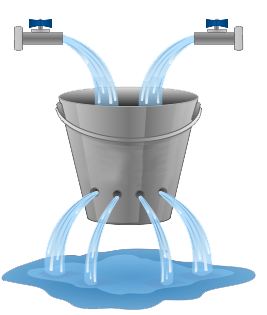
- Something planned
- Someone on the side
- Something to think about
- Something great to announce
- Something new to show off
- Something— ANYTHING to get them attention so others can reassure them, “Yes, you exist.”
Only when they’re able to extract narcissistic supply from those around them, do they find temporary relief from their empty, non-existing-ness. So, they wave the new person and their happy life all over the place to stock up on as much narcissistic supply as they possibly can.
Are you starting to see how the flaunting doesn’t have much to do with this next victim as a person?
This is why going No Contact is not only important for your safety and sanity, but a powerful weapon against the always NEEDY abuser.
4. Yes, They Will Attempt to Smear Your Name to Make You Look Like the Lunatic
Continuing with the previous discussion, the narcissist will use the state of their relationship with the current victim to try and convince their audience that s/he can be a dreamboat with the right person.
Narc: Let me prove that my ex is the crazy one! Just look at my new soulmate. Look how in-love and happy s/he is because of me! Need more? Ok, well now we’re getting married after dating for just a few months… and we’re having a baby… and building a mansion on a cloud together!
My advice to you?
- Go No Contact. Do this properly.
- Continue living your life in a way that will make people doubt the nasty things being said about you.
Of course, there will be those who will take the abuser’s side… even people you thought were your friends. It’s gonna sting?—?but, this is real life. How did I deal with this? I forced myself to look at this as a chance to see who’s really got my back. Because those are the people I want in my life anyway.
Remember too… narcs are master manipulators. And the truth is, the truth will always come out. It might happen after a few days or weeks. And it may not happen for months… even decades. But cream always floats to the top. If then, the people who fell for the narc’s illusions come back to you, it’ll be up to you to decide whether to forgive and welcome… or forgive and let go.
Do your best to deprive them (the narc and their homies) of any reaction. You’ve always been the light… the narc is just a shadow. If you refuse to shine light on them, they will disappear.
So prove them all wrong by living your truth.
5. Yes, They’ll Hoover. Even If You Don’t Know It
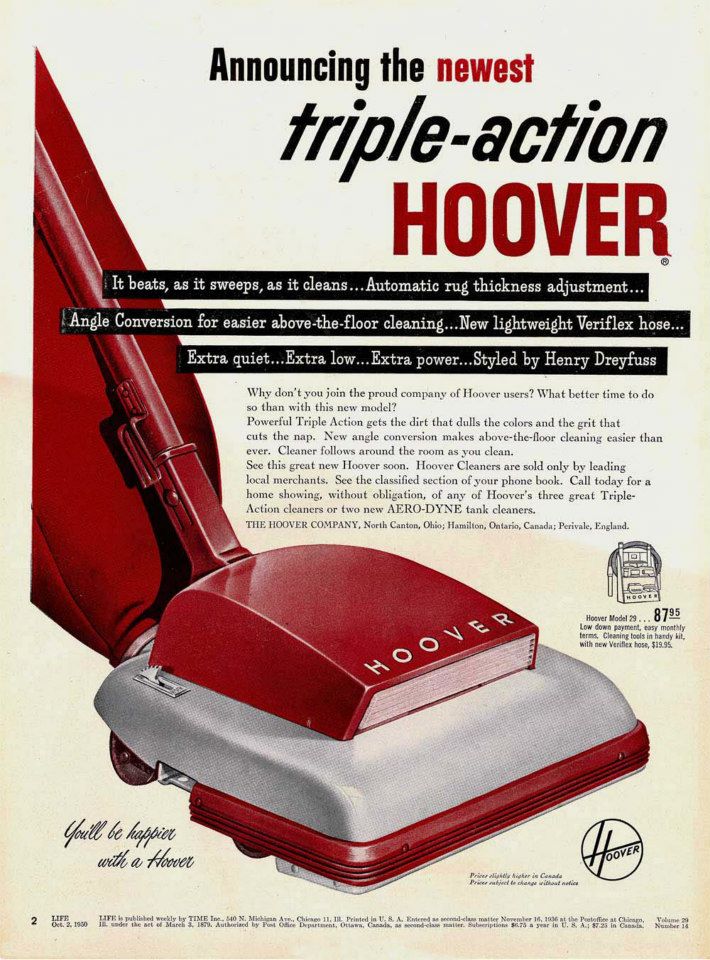
Hoovering (named after the Hoover vacuum ) is an emotional abuse tactic used by manipulative personality types. They use this to suck their victims back into their space because they’re running low on narcissistic supply.
The purpose of the hoover is to:
- Resume a relationship with you to extract more supply, or
- Obtain negative fuel by witnessing your torment (near or far)
According to HG Tudor, a self-described narcissistic psychopath:
You belong to us. You are our appliance. You are our property. The Formal Relationship between us may have ended but the Narcissistic Relationship is forever. It only ends when either you or I cease to draw breath.
They don’t care about you or a happily-ever-after with you (or anyone). All they want is to rob more of your energy, one way or another.
- They’ll call you. Even from unknown/blocked numbers.
- Text/Email you. Even a “Sorry! I meant to send that to someone else.”
- Tell you there’s an emergency. That you’re the only one they can turn to with this problem.
- Stalk your social media accounts.
- If you’ve blocked them like you should, they will try to make contact through mutual “friends” (aka flying monkeys) who will feign concern for you?—?then report back to the narc (block them as well).
But, if you’re properly executed No Contact and have successfully made yourself absolutely unreachable, there will be no hoovering.
A warning when hoovering doesn’t happen.
Because of trauma bonding (next section), survivors who do not get hoovered have a tendency to feel disappointed. Feeling as though they weren’t valuable enough for the narc to come back after them.
No.
It means you’re no longer a convenient, blindly trusting victim.
This is EXACTLY where you want to be so you can begin healing from emotional abuse. It’s your chance to clean out your space, grow stronger, and become whole again.
Yes, you miss them, but it’s due to trauma bonding: a toxic addiction so far removed from love, it’s scary.
6. No, You’re Not Bound to the Narc by "Love"… This Is TRAUMA Bonding
A trauma bond is the addiction to your abuser as a self-preservation and/or coping mechanism.
How does trauma bonding happen?
During the narcissistic relationship, the abuser uses a manipulation tactic known as intermittent reinforcement.
This is when the abuser withholds attention, provokes insecurity, blame-shifts, and invalidates your thoughts and feelings, leaving you to wonder what the heck you could be doing to push your soulmate away.
But, every once in a while, the narc throws scraps of love and affection your way. This makes your heart light up and think, “Finally! The perfect relationship I knew is returning to normal!”
Over time, the victim begins to see the abuser as their source of reward and comfort. The longer they remain in the relationship, the stronger the bond grows.
Sadly, the coldness & distance return and you’re back to feeling alone, confused, and longing for that perfect person you knew from before.
And just when you think the relationship is finally coming to an end (again), the narc throws you bits of “love” (again), giving you relief from the pain and reigniting your hope for the return of your soulmate (again).
And so it continues. This is why you find yourself obsessively thinking about and repeatedly going back or reaching out to the abuser.
Emotional abuse can change your brain.
The logical part of your brain is numbed out to protect you from shock, leaving you to function mainly from the emotional part of your brain.
If that’s not scary and disturbing, I don’t know what is.
This is why at this point, you will do just about anything for those scraps of attention. You’ve become addicted to the INTENSE feeling of RELIEF after being treated so poorly by the love of your life.
So if you find yourself wondering:
- Why you still can’t let go of the one person who treated you exactly the way s/he swore on their life to never do.
- Why you still love the abuser so much.
- Why after being dragged through hell, you’re still determined to hold onto hope that things can possibly still change for the better…
You can be sure you’re not bound to the narc by love, but addiction. This is trauma bonding. An addiction to the feeling of relief after prolonged emotional pain caused by the abuser.
Absolutely not love by a long shot.
You’re not even thinking clearly anymore?—?you’re reacting to your addiction. This is dangerous and keeps you susceptible to harm. It’s the reason why doing No Contact is absolutely required.
Because the longer you remain focused on the narcissist, and the more effort and attention you give them after the relationship has ended, the more you will LOSE YOURSELF.
7. No, This Pain Won’t Last Forever… Yes, You Will Get Yourself Back
It won’t be easy and you’ll feel like giving up. You could even find yourself tempted to beg your abuser to take you back.
But no matter how lonely, confused, and sad you’re feeling – CHOOSE YOU.
- Choose reclaiming your happiness and safety – over someone who is unable to see you as a separate person with your own thoughts and feelings.
- Choose your self respect and worth – over the company of someone who only keeps you around because you validate their existence.
- Choose your well being – over giving power to a toxic person who draws energy by playing mind-games with you.
- Choose a life free of abuse. Free of fearing someone who is supposed to love and care about you.
- Choose the truth. The narcissist cannot provide you (or anyone) with genuine love and compassion.
Here are some things I personally did to begin my healing. And please remember there is no shame in getting support from mental health professionals to help you navigate through this devastating experience.
In Closing
What I needed most during the aftermath of this relationship was validation, information, and the next steps to take while I still couldn’t fully grasp what just took place.
I believe you. You’re not crazy. This really happened.
You may not see it happening now (I know I didn’t), but this experience will force you to find strength from within that you never knew you had. You will find love and support from family and friends you’ve alienated during the relationship. If you’re religious, your faith will grow beyond anything you’ve experienced. And your self-confidence… once you break free from this cycle, you’ll find that your self-confidence has never been more solid.
Fight to get yourself back like your life depends on it. Because it really does.
And keep choosing YOU.
Next Step: Please give yourself some room to breathe and a clean, safe space to heal and recover by going No Contact.
You’re invited to subscribe to my Choose You Podcast: A weekly audio coaching program to provide survivors of narcissistic abuse with validation, solid answers, and real-life solutions to help heal and break free from this dangerous cycle. (Available on iTunes and on your favorite Podcast app.)
References
Levy M. S. (1998). The Journal of Psychotherapy Practice and Research, 7(3), 227–235.
McBride K. (2009). Will I Ever Be Good Enough?: Healing the Daughters of Narcissistic Mothers. New York: Atria Paperback.
Stout, M. (2012). The Sociopath Next Door: The Ruthless Versus the Rest of Us. New York, NY: MJF Books.
Twenge, J. M., & Campbell, W. K. (2009). The Narcissism Epidemic: Living in the Age of Entitlement. New York: Atria Paperback.
